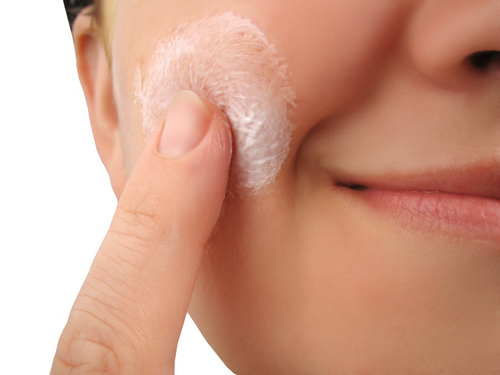Many Americans struggle with acne, regardless of their age, sex or race. Acne can appear on different parts of the body, most notably the face, chest and back. Individuals may experience severe acne or limited acne. Acne can result in individuals feeling embarrassed by their skin, causing emotional distress and can also cause skin damage. Fortunately, there are simple ways to reduce and prevent acne.

What causes acne?
Acne commonly results from the backup of bacteria in pores throughout the skin. Pores are small openings found on the surface of the skin and become clogged when glands produce too much oil, resulting in acne. Although some may believe acne to be all the same, there are different types of acne. Common types of acne include blackheads, whiteheads, papules, pustules, and cysts.
Blackheads and whiteheads are a specific type of acne referred to as comedones. Blackheads are open comedones and result from sedum oil clogged inside the pores, giving it a black color. They are usually found on the cheeks, nose and chin areas. Whiteheads are closed comedones in which sebum blocks the opening of the pore. This type of acne results from excess oil and dead skin cells. They are usually found on the forehead, nose and lower lip areas.
Papules are small, solid inflamed bumps with no head that appear as lesions. They are usually brown, purple, pink or red in color. Pustules are inflamed bumps filled with pus. Pustules appear as red circles with a yellow or white center. They commonly appear on the face, shoulders and chest. Cysts are large, hard bumps located under the surface of the skin. They appear when inflammation reaches deep into the skin. Because they are the most severe type of acne, they are often painful, last for months, and commonly cause scaring.
How to keep pores clean
In order to remain acne-free, it’s vital to keep your pores clean and free of dirt and bacteria. Below are four ways to maintain clean skin.
-Follow a healthy diet: You should eat a healthy diet with foods that are free or low in fats and acids. Foods high in fats and acids include coffee, soda, red meat and sugar, which should be avoided or limited.
-Use facial soaps: When washing your face, avoid using body soaps and, instead, use pore cleansing products. Pore cleansing products work to clean, treat and prevent oily or dry skin and acne.
-Avoid heavy makeup: If you wear makeup, be cautious of the chemicals in the makeup as these can cause acne breakouts, blemishes and skin problems.
-Exercise regularly: In addition to the common health benefits of exercise, exercising also helps to cleanse your pores through sweat. In addition, exercising helps reduce stress, in which stress can play a role in the development of acne.
Jillian Johnson is a professional content writer with a passion for writing about health, fitness and beauty. Follow her @JillianLJ87.
How To Stay Acne-Free

